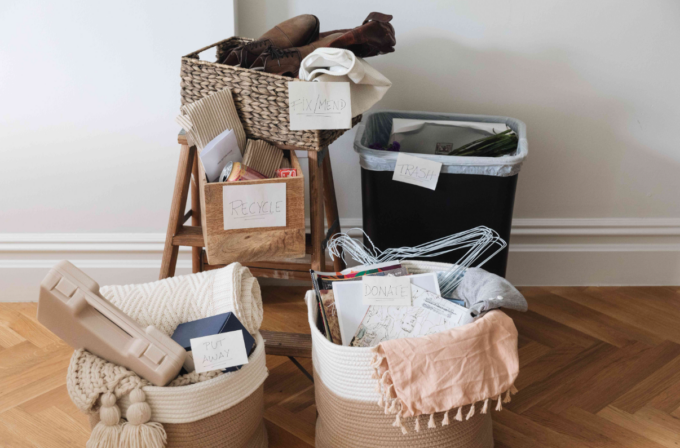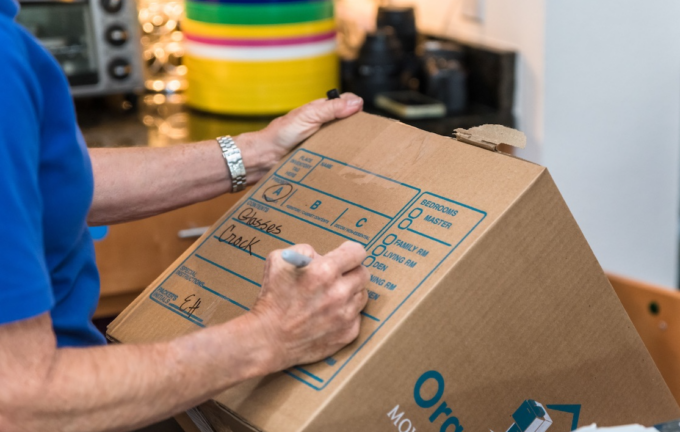The experience of moving into a new house is filled with excitement; nevertheless, it may be difficult on the wallet.
It’s easy for costs to quickly build up when you factor in utility connections, security deposits, and the price of outfitting your new apartment.
Nevertheless, you can save costs associated with this shift by meticulously preparing and making astute decisions.
As you prepare to move into your new residence, we will go over various ways to help you cut costs and save money in this post.
Create a budget
Putting down a detailed moving budget is the first thing you should do to cut costs during your relocation. Find out how much money you make, your fixed costs, and how much you want to save.
Consider the additional expenses incurred from the move, such as utility deposits, moving supplies, and professional moving services.
If you comprehensively understand your financial situation, you will be better equipped to make judgments and less likely to waste money.
Get rid of the clutter

Make use of your time before moving to organize and purge your belongings. Sort your belongings and identify any goods you don’t use or need.
You can sell these things on various internet marketplaces, garage sales, or consignment shops.
Not only will this help you limit the number of items that need to be moved, but it also has the potential to create additional revenue.
Prepare for the future
Getting organized in advance is one of the most efficient methods to cut costs associated with moving.
Start preparing for the transfer as early as possible to prevent incurring unexpected expenses at the last minute.
Research several moving companies and compare prices to choose the most cost-effective alternative.
Additionally, reserving your moving services in advance will help you gain better pricing for your relocation.
Pack with caution
Spending money on packing equipment is possible, particularly if you rely only on buying new boxes.
Instead, it would be best to acquire free boxes from grocery stores, bookshops, or liquor stores in your neighborhood.
When packing smaller items, you should use your luggage, backpacks, and containers for storage.
In addition, you can protect fragile items by using clothing, towels, and blankets as padding, eliminating the need for bubble wrap.
Consider DIY
The cost of getting a moving company can add up quickly, particularly for long-distance relocations.
Consider a do-it-yourself (DIY) relocation if you have the necessary time and energy.
The costs associated with relocating can be reduced greatly by renting a truck or van and enlisting the assistance of friends and family.
Just make sure that you plan out the logistics plenty of time in advance and that you take into account any costs for petrol or other fees that are related to the rental vehicle.
Label and organize efficiently

Ensure your boxes are properly labeled and organized before beginning the unpacking process.
It eliminates the need to make unneeded additional purchases or frantically search for vital items once you have moved into your new house.
Moving efficiently helps reduce the risk of damaging or losing personal property, saving you money on potential replacement expenses.
Home Warranty
House and appliance warranties often cover repairing or replacing important systems and equipment in your house.
These can include heating, ventilation, air conditioning (HVAC), plumbing, electrical systems, and appliances in the kitchen and other rooms.
For instance, if your washer or dryer breaks down due to regular wear and use, the washer and dryer warranty will cover the cost of repairs or replacement, saving you from paying the full amount out of pocket.
It can benefit new homeowners, who may need more financial preparation for the strain that the unexpected cost load of repairs can bring.
Utilities and service subscriptions
Be wary of signing up for needless subscriptions or purchasing exorbitant plans while setting up the utilities in your new house.
Conduct a needs analysis, and then select the internet, cable, and phone service alternatives that offer the most value for your money.
If you want to save money on your services, consider bundling them.
To save money on utility costs, consider purchasing equipment with a low environmental impact and making it a routine to turn off the lights and electronics when they are not in use.
Smart shopping for home furnishings

The cost of furnishing a new house can rapidly become a significant drain on one’s finances. To save money on furniture, determine which pieces are essential and then gradually put in parts that aren’t necessary over time.
Think about picking up some gently used pieces of furniture from thrift shops, online markets, or even yard sales.
Reusing or repurposing previously owned items can help you save money while giving your new area a unique look and feel.
Meal preparation and groceries
Moving can cause disruptions to your typical eating patterns, leading to an increase in the amount of money spent on takeout or dining out. It is important to make meal plans and cook as many of your meals at home as possible.
Before you move, clean out your refrigerator, pantry, and freezer so you won’t have to throw away any food.
Once you’ve gotten used to your new place, it’s time to establish a routine for going grocery shopping and keep to a shopping list that’s kind to your wallet.
DIY home improvement
Completing some of the smaller home renovation work can save money that would have otherwise been wasted.
Acquire some fundamental skills in do-it-yourself projects and try your hand at things like painting, constructing furniture, or installing fixtures.
You may find a wealth of information and how-to tutorials to assist you with completing these projects by using the internet.
If you do it on your own, not only will you save money on the expense of labor, but you will also get a sense of accomplishment from the work that you have done.
Look for grants or rebates

Research to determine whether the government offers any assistance programs or refunds that can be used to reduce the overall cost of relocating or other home-related expenses.
Investigate your eligibility for assistance programs by contacting the relevant municipal authorities, housing agencies, or utility companies.
When transitioning into your new home, these programs can give financial assistance.










